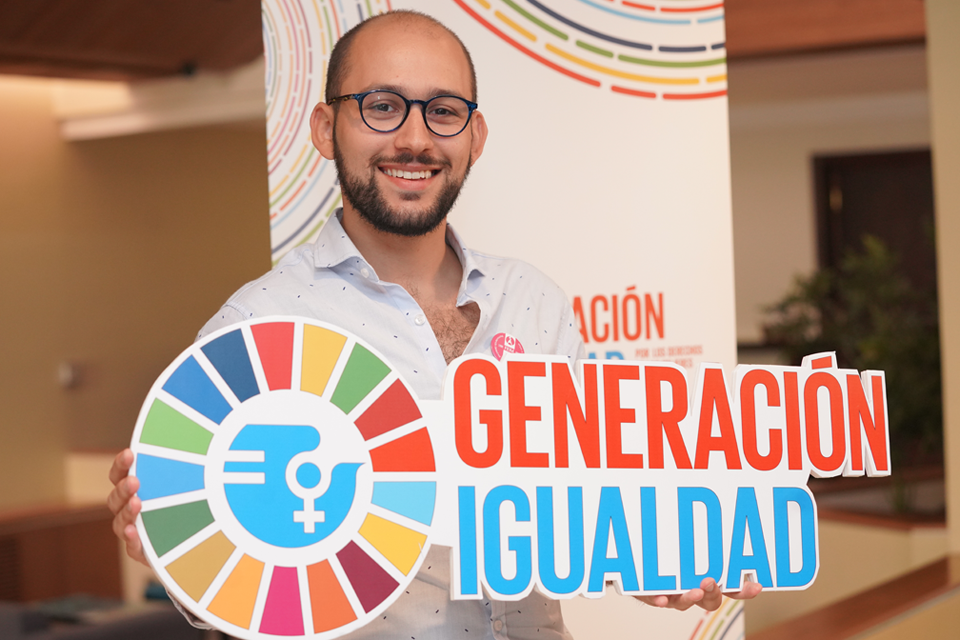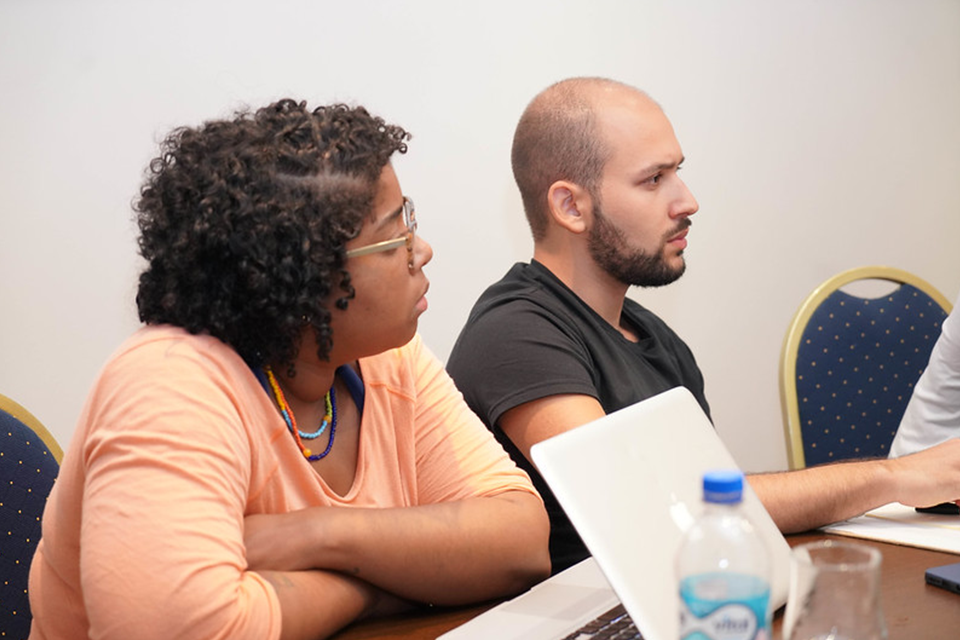I am Generation Equality: Juan Pablo Poli, Argentine activist and sociologist, participating in political advocacy processes.
Date:

Juan Pablo Poli is a young Argentine activist, who at 23 years of age, has experience in political advocacy processes. He is a member of the Beijing+25 Youth Task Force and has worked on issues related to sexual and reproductive health, adolescent pregnancy and violence in relationships.
He studies Sociology at the University of Buenos Aires and has provided training workshops for young people on comprehensive sexual education, new masculinities, among others.
He has been a member of Gender Observatories and Youth Councils and is trained in the elaboration of public policies and the analysis of public budgets with a gender lens.
He was recently recognized by the Chamber of Congress of his province, for his work in defense of the rights of children, adolescents, young people and women.
How do you imagine equality in the next 25 years?
I imagine a world where we respect each other, but vindicating the differences (...) The real challenge is to learn to live harmoniously in societies in peace, with security, without losing our individualities, respecting our differences and learning to accept them.
What is your message for today's leaders?
The urgent appeal is to put an end to femicides; to put an end to gender-based violence, but above all, to femicides. Our region can attest to this because it is one of the regions with the highest rates in the world. Leaders have to look for mechanisms to put an end to the cultural mandates on which these violent practices are based because we have a lot of solutions but we are already late in addressing the problem. We have a lot of measures to address the problem, but we are also late. So how do we go about eradicating these cultural mandates that are so deeply rooted in our societies?
What does it take to achieve equality and inclusion?
The key to achieving equality and inclusion is education. It is a challenge, but it is the only tool that allows us to change our cultural mandates. Educating our children in the idea that no one has superiority over anyone else and that we are all equal in rights, even if we are different and with our individualities, I believe is the path to true equality. I believe that this is the great challenge of our generation: to make equality a reality.
Learn More:
Latin American and Caribbean Feminist Youth Statement [Spanish]